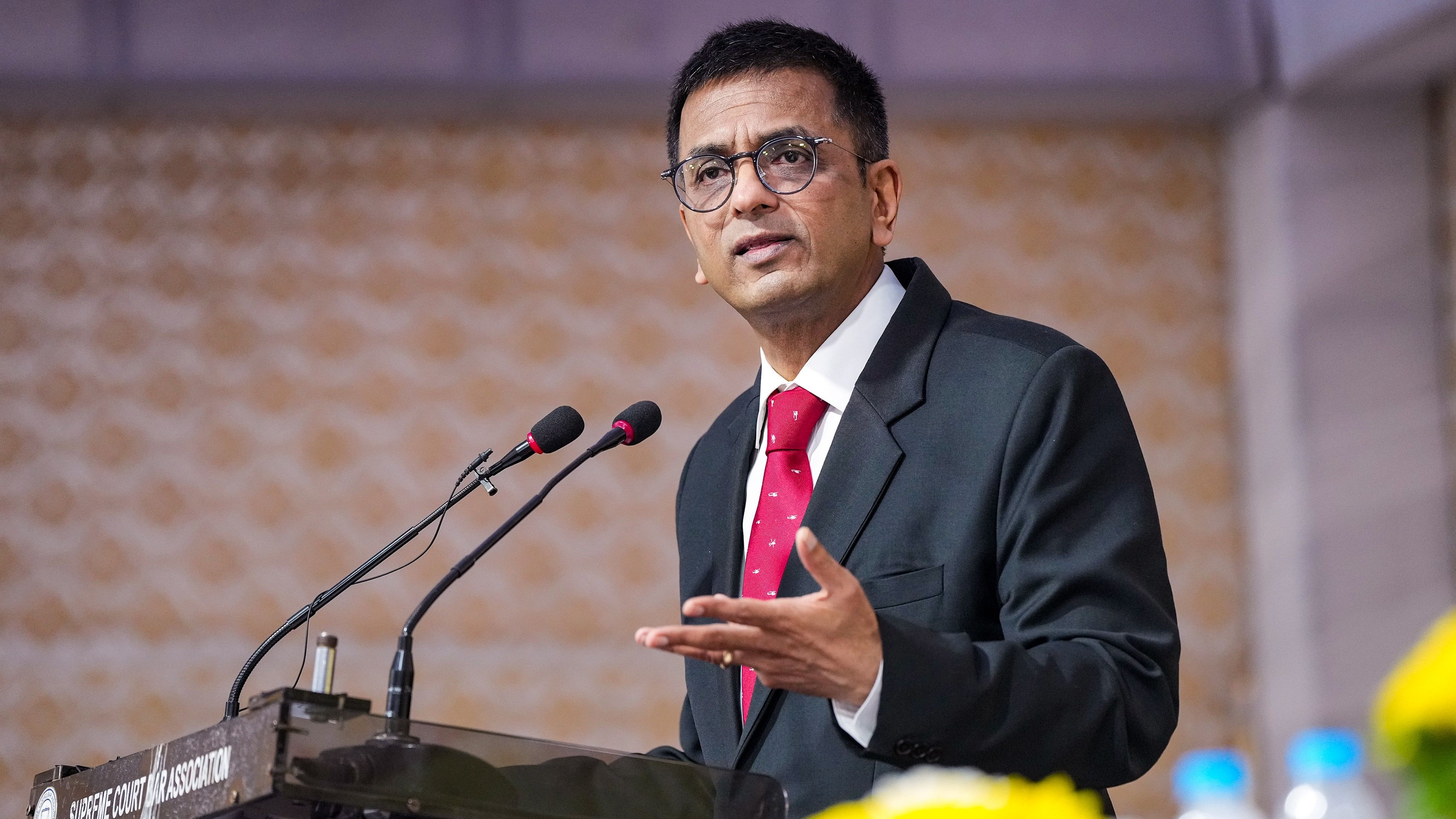
Chief Justice of India (CJI) Justice D Y Chandrachud.
Credit: PTI File Photo
New Delhi: Chief Justice of India D Y Chandrachud has said arbitration is no longer an “alternative” but it is in fact the preferred method of seeking commercial justice, which also provides a level playing field outside domestic court systems.
Speaking in the Supreme Court of United Kingdom, he said the values of a liberal democracy enshrined in our Constitution allowed people to seek individualised solutions to their legal problems outside the judicial setup, if the solutions do not violate established law.
He was delivering his lecture on Thursday on the topic 'Laws and Practice of commercial arbitration: Shared understandings and developments in UK and India'.
The CJI said courts in India are overburdened despite the High Courts disposing of 2.15 million cases and the District Courts disposing of 44.70 million cases in 2023. These figures show the trust that the people of India have in their judiciary.
However, a shift is being driven by the desire of parties to distance themselves from domestic court systems and resolve their disputes through a neutral, third-party arbitrator, he said.
"Our judiciary functions on the mantra that no case is small or big. Every aggrieved person who approaches the doors of the judiciary has the right to a just remedy. In attending to these grievances, the courts in India perform their plain constitutional duty. The width of our jurisdiction was designed to ensure the widest access to justice. But surely every case need not find a remedy before a court, with emerging forms of dispute resolution such as arbitration and mediation gaining acceptance," he said.
The CJI said he firmly believed now is the time for countries such as India to step up to the occasion to create and promote a culture of commercial arbitration.
He said the robust institutionalisation of arbitration will further the culture of arbitration in the Global South.
The CJI stressed arbitral institutions ought to be transparent, accountable, technologically advanced and at the same time bring greater diversity in terms of gender or from the Global South to make for a broad-based process.
"In recent years, institutions such as the India International Arbitration Centre and Mumbai and Delhi International Arbitration Centers have been set up and are seeing a steady flow of arbitration matters. But the mere creation of institutions is not sufficient. We have to ensure that these new institutions are not controlled by a self-perpetrating clique. These institutions must be based on the foundation of robust professionalism and the ability to generate consistent arbitral processes," he said.
The CJI, however, emphasised the substitution of courts should not result in the creation of opaque structures. Technology and artificial intelligence add value to the services provided by arbitral institutions in matters such as reviewing documents or transcribing the proceedings, he pointed out.
"Although the core of arbitration law could be traced to the traditions of common law and civil law, it is infused with new legal ideas and innovations every day. Courts in the Global South such as the Supreme Court of India are trying their best to make arbitration law more efficiency-oriented. We continually draw from comparative law. Our sights travel beyond borders to sustain India’s place in the emerging world. The next step is to draw out more people from the Global South to act as counsel and commercial arbitrators. Steps are being taken with the creation of the Arbitration Bar of India," he said.
